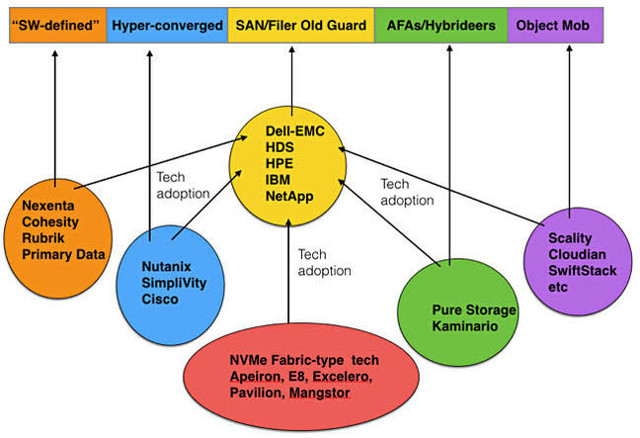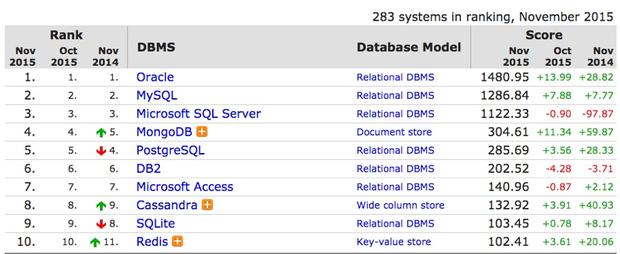
Photo by Andres Urena on Unsplash
Xerox is looking to combine with HP Inc, which brings me back to the early days of this blog. There were rumors that HP Inc and Xerox were going to merge way back in 2015 but then Xerox got involved with Fuji Film and then they were no longer involved with Fuji Film. I am not sure how this deal would work considering Xerox wants to acquire HP which has the bigger market cap.
Google’s growing pains continue as critics ponder why the company is pushing so hard to get into hardware while the Government investigates them.
After years of fending off Microsoft, Slack is looking vulnerable due to poor paid growth projections. Everybody seems to be loving Microsoft at the moment, but they know how to be aggressive when they want to be, and they seem to want Slack out of the way.
Acquisitions/Investments
- HP confirms it has received a proposal from Xerox about being acquired
The Wall Street Journal got things rolling earlier today when it published a report that Xerox was interested in the printer company, reporting the offer could be for more than $27 billion. That’s a lot of money and the company has to at least consider it (assuming it’s accurate).
HP acknowledged there are ongoing discussions between the two companies and that it received an offer letter from Xerox yesterday. What’s odd about this particular deal is that HP is the company with a much larger market cap of $29 billion, while Xerox is just a tad over $8 billion. The canary is eating the cat here.
https://techcrunch.com/2019/11/06/hp-confirms-it-is-having-discussions-with-xerox-about-being-acquired/
Xerox to Sell Stake in Joint Venture to Fujifilm for About $2.3 BillionXerox has agreed to sell its 25% stake in the venture, Fuji Xerox, to Fujifilm as part of a deal that will bring Xerox total proceeds of $2.3 billion, the companies said.
Xerox has also agreed to sell a majority stake in a smaller joint venture to an affiliate of Fuji Xerox and extended the timeline of an agreement allowing Fujifilm to be a major supplier to Xerox, the companies said.
- Workday to acquire online procurement platform Scout RFP for $540M
The acquisition builds on top of Workday’s existing procurement solutions, Workday Procurement and Workday Inventory, but Workday chief product product officer Petros Dermetzis wrote in a blog post announcing the deal that Scout gives the company a more complete solution for customers.
“With increased importance around the supplier as a strategic asset, the acquisition of Scout RFP will help accelerate Workday’s ability to deliver a comprehensive source-to-pay solution with a best-in-class strategic sourcing offering, elevating the office of procurement in strategic importance and transforming the procurement function,” he wrote.
https://techcrunch.com/2019/11/04/workday-to-acquire-online-procurement-platform-scout-rfp-for-540m/
- T-Mobile’s latest merger gambit isn’t subtle
The three programs T-Mobile announced are contingent on the merger. The company will only provide these services if it is able to complete its merger with Sprint. These programs are each cleverly designed to give T-Mobile instant rebuttals to potential criticisms of the merger. They’re so well-crafted that I can’t help but applaud how genius they are as pieces of propaganda. Even calling them “propaganda” makes me the asshole!
https://www.theverge.com/2019/11/8/20954479/t-mobiles-5g-publicity-stunt-firefighters-merger-sprint
Artificial Intelligence
- OpenAI has published the text-generating AI it said was too dangerous to share
GPT-2 is part of a new breed of text-generation systems that have impressed experts with their ability to generate coherent text from minimal prompts. The system was trained on eight million text documents scraped from the web and responds to text snippets supplied by users. Feed it a fake headline, for example, and it will write a news story; give it the first line of a poem and it’ll supply a whole verse.
It’s tricky to convey exactly how good GPT-2’s output is but the model frequently produces eerily cogent writing that can often give the appearance of intelligence (though that’s not to say what GPT-2 is doing involves anything we’d recognize as cognition.) But play around with the system long enough and its limitations become clear. It particularly suffers with the challenge of long-term coherence; for example, consistently using the names and attributes of characters in a story, or sticking to a single subject in a news article.
- Google’s AI education tool makes it easy to train models for your projects
Google’s Teachable Machine is no longer just a handy lesson in AI — you can now put it to work. The tech giant has launched Teachable Machine 2.0 with the ability to use your machine learning model in apps, websites and other projects. You can upload your model if you need it to work online, or save it if you’d rather have it on-device. You could create your own Not Hotdog app without having to craft an AI system by hand.
Teachable Machine can also accept more than just images. You can train AI models based on sound and poses in addition to the usual image data (including photos, not just webcam images). Want to determine whether or not your music is metal enough? Now you can. The system also lets you upload your own data sets if you have some on hand, and can train more than three classes per model if necessary.
https://www.engadget.com/2019/11/07/google-teachable-machine-2/
Cloud
- Indeed says Deloitte, IBM, Accenture top hirers for blockchain staff
The report observed that software roles make up the highest percentage of crypto and blockchain jobs. Deloitte, IBM, Accenture, Cisco and Collins Aerospace are the top five companies hiring for crypto and blockchain roles. Another consultancy, EY, comes in at number six. But the proliferation of blockchain technology is not limited to one industry and startups are popping up everywhere.
The data covered both blockchain and cryptocurrencies, and the top six appear to be firmly in the enterprise blockchain camp. One startup – ConsenSys – falls into both sectors. Earlier in the year it was in the top ten but has now fallen to number 13 on the list of top hirers.
https://www.ledgerinsights.com/indeed-says-deloitte-ibm-accenture-top-hirers-for-blockchain-staff/
Security/Privacy
- With a Laser, Researchers Say They Can Hack Alexa, Google Home or Siri
Researchers in Japan and at the University of Michigan said Monday that they had found a way to take over Google Home, Amazon’s Alexa or Apple’s Siri devices from hundreds of feet away by shining laser pointers, and even flashlights, at the devices’ microphones.
In one case, they said, they opened a garage door by shining a laser beam at a voice assistant that was connected to it. They also climbed 140 feet to the top of a bell tower at the University of Michigan and successfully controlled a Google Home device on the fourth floor of an office building 230 feet away. And by focusing their lasers using a telephoto lens, they said, they were able to hijack a voice assistant more than 350 feet away.
https://www.nytimes.com/2019/11/04/technology/digital-assistant-laser-hack.html
- Google’s cybersecurity project ‘Chronicle’ is in trouble
The employees Motherboard talked to said people have been leaving the company due to “a distant CEO” and “a lack of clarity about Chronicle’s future.” A former employee called Gillett a figurehead who didn’t care what everyone did outside of money matters. Sales and engineering people have apparently been finding other roles in Google or leaving the company entirely, because they have no product roadmap.
Gillett himself already left for another role inside Google, while co-founder and chief security Mike Wiacek exited the tech giant. “Chronicle had one of the most healthy and vibrant corporate cultures I could imagine. Things were never perfect, but that’s important,” Wiacek wrote in his farewell note. Motherboard says Will Robinson, the Chief Technology Officer, also announced internally that he’s leaving the company.
https://www.engadget.com/2019/11/09/google-chronicle-trouble/
Software/SaaS
- Microsoft reveals the future of OneNote and it’s all about Fluid and desktop
So what does this mean for the separate OneNote for Windows 10 app? Hodes didn’t reveal exactly what Microsoft is planning, but Mike Tholfsen, a Microsoft product manager, says “there will still be a Desktop and separate Windows 10 app.” It’s hard to imagine that two OneNote apps will exist to confuse Windows 10 users, but Microsoft does still have two Skype apps. It’s far more likely that at some point Microsoft will put development of this dedicated version on hold, as the company will start installing OneNote 2016 by default with Office 365 installs in March.
Microsoft experimented with universal Office apps for Windows 10, but the company put these apps on hold last year. “We are currently prioritizing development for the iOS and Android versions of our apps; and on Windows, we are prioritizing Win32 and web versions of our apps,” explained a Microsoft spokesperson at the time.
- Slack continues to sink as analysts worry Microsoft will kill it
The Microsoft threat is a big reason why Slack’s stock, which debuted in late June through a direct listing on the New York Stock Exchange, has plunged in the past few months. It’s a classic David vs. Goliath story — except that most investors don’t believe Slack has a big enough rock to slay the giant from Redmond, Washington.
Slack shares fell 2% Friday and dipped below $20, hitting an all-time low that is 25% below the stock’s reference price of $24 on the day of its Wall Street debut. The stock has plummeted more than 50% from its peak of $42, which it reached on its first day of trading.
The company reported a big loss and slowing sales growth in September, news that spooked investors.
https://www.cnn.com/2019/11/08/investing/slack-stock-microsoft-teams/index.html
Infrastructure/Hardware
- Why Google, a software giant, is spending billions to get into gadgets
Despite the billions Google has spent to get into hardware, the tech giant is still a small player in gadgets. Its Android smartphone operating software is in more than three times the number of global devices as Apple’s, but Google continues pushing its Pixel-brand phones, a laggard in market share. Advances in hardware like GPS and radar mean gadget makers are increasingly the gatekeepers for companies that make software for mobile phones. In terms of data collection, having customers using both the device and the operating system is akin to owning the mall rather than just the department store in it.






